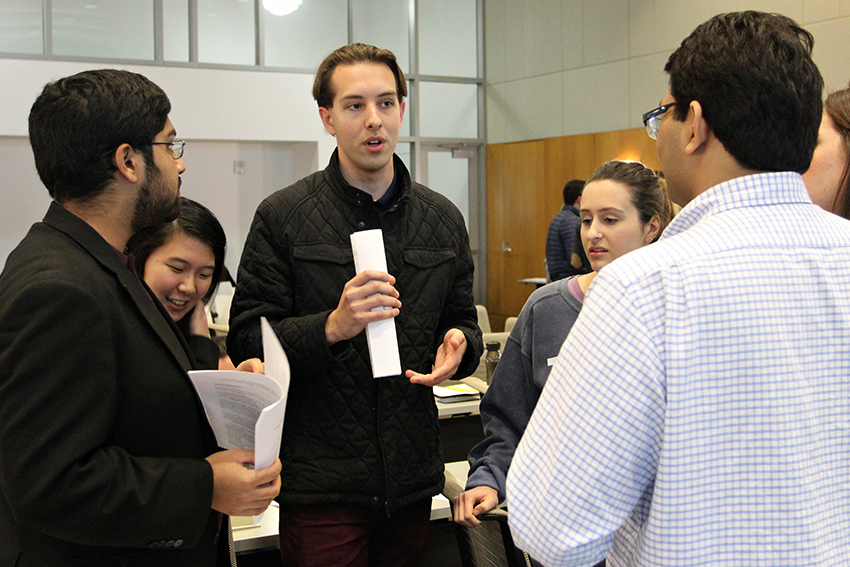After tense debate, Student Government failed to pass a bill that would have changed the way votes are counted in campus-wide elections from checked boxes to a ranking system.
The meeting saw extensive debate, a recess and a revote over the single transferable vote method, which would have eliminated runoffs in elections.
“While it is good to eliminate runoffs and it can be frustrating for the student body, it gives students a chance to really educate themselves on both executive alliances that are running,” said speaker Madison Huerta.
A recall vote, which normally impacts executive alliances the most, can give candidates the chance to reach more students, said Huerta, a business management senior.
“A lot of times people will switch their vote, or the candidates will focus down and educate students on their true platforms,” said Huerta. “But a lot of people are really frustrated with Student Government for prolonging the campaign process.”
The bill would have produced a more accurate portrayal of students’ voices, said Benjamin Solder, an author of Committee Substitute Bill 2.
“It admittedly makes the ballot slightly more complicated just because it’s not checking boxes now — you have to add ordinal numbers,” said Solder, a neuroscience junior. “But I think the benefits of the system greatly outweigh that cost, and I think UT students are obviously bright enough to figure out how to rank a list of people.”
Solder said significantly less voters participate in runoffs, and so reallocating votes from candidates who didn’t make the minimum cutoff would yield a more representative SG assembly.
“1400 fewer students participated in the runoff last year than in the initial election,” Solder said. “I think the cost of runoffs obviously outweighs that potential benefit.”
Social work representative Natalie Engel was concerned that a ranking system would give large coalitions of students, such as Greek life, an unfair advantage.
“I’m a member of Greek life, and I know that a lot of Greek life voters tend to vote for Greek life members,” said Engel, a social work and communication studies senior. “I’m concerned that you’re going to end up disproportionately helping a group who might not have gotten the votes on their own to start with.”
As a result, Engel said, the ranking system would decrease the diversity of SG representatives.
“We already don’t have a lot of diversity on Student Government,” Engel said. “We’re advocating for more diversity, but I’m concerned that you’re going to limit that for the future.”
There are already loopholes allowing coalitions of voters to strategize their vote, Solder said, and the STV method would actually scatter those votes instead of giving them more power.
“The Greek folk would have to split their vote against all these different candidates, whereas the people who are actually in favor of … a minority candidate all get to rank that person first,” Solder said.
Other representatives were concerned with the mathematics of the STV method and whether it would skew the votes in favor of a candidate that was not the majority’s first preference.
“You cannot argue with how representative a mathematical system is,” Solder said in response. “There is no subjectivity involved with this process. Mathematically, every time … people’s preferences are expressed better through this system.”
With 13 votes in favor and nine against, C.S.B. 2 failed to obtain the supermajority it needed to pass.





















